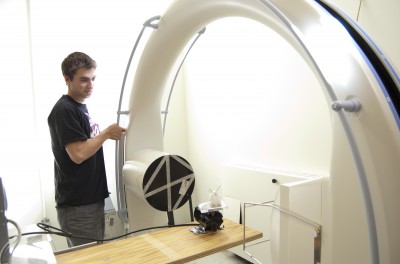Graduate Studies at Carleton University is a leader in experiential learning in Ontario. Twenty-seven per cent of Carleton’s grad programs offer a co-op, internship, field work, or practicum, providing graduate students with hands-on, experiential learning beyond the classroom.
“This goes hand-in-hand with our anything but textbook approach at the undergraduate level,” says John Shepherd, dean of the Graduate Studies (GS). “With this kind of experience, our students are not only able to think and problem solve in the real-world when they graduate, but they will be able to hit the ground running in their respective fields. This matters in terms of experience, contacts and understanding real-world applications of their knowledge.”
Overall, 88 graduate programs at Carleton offer 24 experiential learning components (ELCs).
Leading the way is Carleton’s Faculty of Arts and Social Sciences as 13 of its 29 programs offer ELCs. Only the University of Toronto has more (14) but based on a total of 54 programs, almost double the number of FASS grad programs at Carleton.
And Carleton matches the number of experiential opportunities in the Faculty of Public Affairs with the U of T (eight each).
The results were compiled in a report done by Graduate Studies. Certain methodological criteria were noted.
As Wallace Clement, associate dean (Programs and Awards) at Graduate Studies says: “We focused our lens on graduate programs that are similar to those offered at Carleton so we excluded programs such as education, law (professional), medicine, health professions (nursing, dentistry, occupational therapy etc.), recreation, theology/pastoral, and visual arts. Programs similar to Carleton’s Art History and Film Studies programs were included as well as performing arts (including musicology.)”




